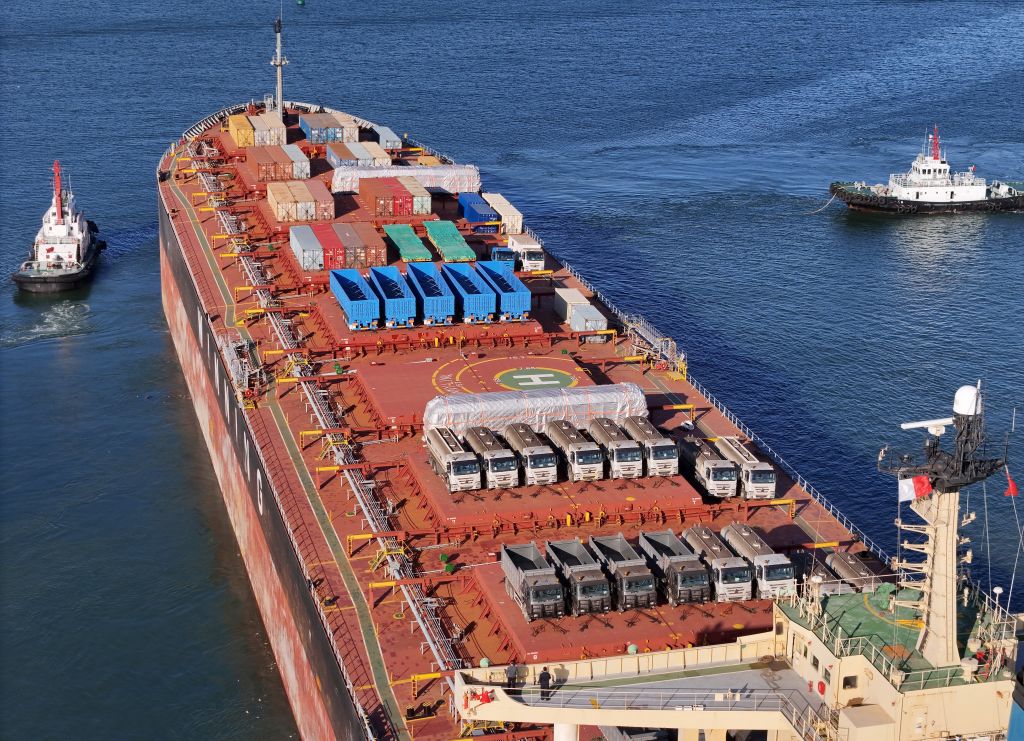Africa! It was the Formula 1 of political unrest, extremism, and democratic reversals, from 2020 – coups competing for attention, authoritarian powers vying for a podium finish and great-power competition clogging the tracks. The colosseum of Africa in the cauldron of discontent. Yet, U.S. engagement in Africa remains deprioritized in Washington, with only sporadic attention, notwithstanding the actions that can indeed reinvigorate democracy and stabilize the region. Instead, enhanced barriers to market access push African countries further away.
Between 2021 and 2024, the U.S. administration actually suspended a record eight African countries from the U.S. tra preference program, AGOA. The European Union’s Carbon Border Adjustment Mechanism puts further pit stops for African manufacturing exports.
And China is buying less crude oil from Africa.
Angola, the second-largest exporter of oil to China in 2010, now, ranks eighth. South Sudan, Sudan and Nigeria have seen declines hovering around 70% in their hydrocarbons’ trade with China. But it’s not all gloom and doom in this Olympiad of hidden agendas.
In minerals and metals trade, African exports to China was $50 billion in 2021, from $15 billion in 2010.
Loading...
Impressively, Chinese investments are now extending into refining and processing on the continent. These include large lithium processing plants in Zimbabwe and Nigeria.
The latest African sport is China’s focus on semi-processed African agriculture exports. China has even committed to opening “green lanes” to fast-track inspection and quarantine processes. Thirty percent of Kenya’s avocados are exported to China today. Namibia began exporting beef in 2019. Ethiopia and Rwanda also send coffee to China.
These are promising signs in a continent where agriculture contributes a fifth of GDP but provides 50% employment.
As Chinese manufacturers accelerate efforts to relocate and avoid the great Western backlash, destinations have been Southeast Asia and Latin America as U.S. gateways.
Africa will benefit from these shifts if integrated into global manufacturing supply chains. There is much work to do.
As labor costs elsewhere rise, relocating production bases to Africa is sensible. This requires better infrastructure though.
China can then help Africa build up comprehensive industrial capacity in the coming years. Already, Chinese e-commerce platforms are a doorway for African suppliers. Innovative live streaming events on e-commerce platforms during shopping festivals in China boost sales.
Reportedly, the sales of Kenyan tea and Ethiopian coffee surged 409% and 143% respectively during one event alone.
Let’s now move to soft power. How it embeds if you catch them young.
China is the second-most popular destination for Africans seeking higher education abroad, with 81,600 students; 61 Confucius Institutes have been established in 48 African countries already. China supports over 30 African universities and programs to study Chinese language. Universities in China have added new courses for African languages, such as Amharic, Malagasy and Zulu. There is also a plan to train 500 vocational teachers and 10,000 technical personnel annually. Then comes the icing. Media and cultural exchanges between Africa and China have increased. Joint production and broadcasting of movies and television series are rising.
Footballers from Angola, Cameroon, Ghana, and Nigeria have joined China’s Premier League. Chinese tourists are growing as African countries provide visa-free/on-arrival entries to Chinese visitors. China’s Ministry of Culture and Tourism has listed 34 African countries for travel. But then, what is the battle of the heart and mind without a bit of money too? China is a prominent lender of last resort through rescue loans and central bank swaps to distressed countries. Not surprisingly, bilateral non-dollar Chinese Renminbi (RMB)-based financing is stealthily growing too.
The agreement reached by Zambia under the G20 Common Framework in June 2023 is a milestone for the Chinese approach to debt restructuring, which favors repayment extension instead of haircut relief.
But somewhere, something is missing which should help the other contestants. China Inc is shifting from infrastructure-oriented projects toward industrialization- oriented projects. African policy responses and the
ability of Western countries to muscle back through core infrastructure financing will be the cherry to pick.
The implementation of the Lobito Corridor by the Partnership for Global Infrastructure and Investment will test the G7’s commitment to infrastructure investments in Africa. Whether the U.S. continues to prioritize the
program’s continuity remains to be seen — especially with a new U.S. administration in 2025. To strike gold, you need a plan. The U.S. and its allies still lack that coherent, well- funded and coordinated strategy to solve the ‘trilemma’: defend democracy, ensure security and extend geopolitical influence; all a function of development and market access. Historically, other strategic priorities have always drawn Washington’s attention away from Africa; Gaza and Ukraine being the current distractions to a massive opportunity.
And hence for Africa, it’s got to be about making hay while the sun shines from the East. Textbooks on ‘how to do things’ are meaningless at the altar of cheque books at times of extreme desperation. Therein lies the current puzzle of how to matter to Africa now. African wisdom thus has to be to ‘run with the hare and hunt with the hounds’.
Loading...
